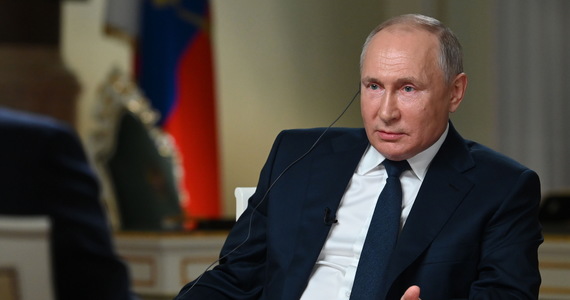Joe Biden, who will meet Vladimir Putin for the first time as President of the United States today, may have to wait for him. Putin’s meetings with world leaders also often attract attention because the Russian leader arrives late.
During the previous Russian-American summit, Putin arrived 40 minutes late to meet President Donald Trump in Helsinki on June 16, 2018. True, Trump came late, another twenty minutes later. In 2012, Trump’s predecessor, Barack Obama waited 40 minutes for Putin At the G20 meeting in Mexico.
In July 2017, the Russian President delayed holding talks with the then Prime Minister of Japan, Shinzo Abe. Just before the meeting, Putin had his first phone conversation with the US president since Trump was elected. Instead of the scheduled 75 minutes, the interview lasted two hours. Putin then apologized, on behalf of himself and Trump, to the Prime Minister of Japan for the delay.
however, Abe found himself in a similar situation in December 2015, during the Russian president’s visit to Japan, when Putin arrived two hours late.. The Kremlin later clarified that the delay was due to the president’s busy schedule, and the Japanese side was warned about this possibility.
The burden of duties is one of the versions of the reasons why the Russian leader is constantly late. The newspaper “Moskovsky Komsomolets” once wrote, citing the president’s entourage, that Putin is preparing for every important meeting very carefully, delving into each topic, even unable to adhere to the established schedule.
“MK” wrote about it in 2013, when the media covered it extensively Putin was about an hour late for a meeting with Pope Francis. The Pope was calm about this, as did the Italian press, because – as commentators in Russia noted – it was difficult to expect anything else, given the reputation of the Kremlin host.
The South Korean media was less lenient when, a month ago, In November 2013, the Russian leader ordered then-President Park Geun-hye to wait half an hour. newspapers Then the Korea Times titled the article: “Mr. Putin, be on time next time! (Mr. Putin, please come on time next time!).
German Chancellor Angela Merkel had no understanding of her delay. In October 2014, she was scheduled to speak with Putin on the sidelines of the international meeting in Milan. The Russian president flew to Italy from Serbia late, and the chancellor postponed their meeting.
However, after the incident in South Korea, the Russian press joked that the half-hour “slide” is a sign of respect on the part of the Kremlin host, who can be delayed for hours. Putin waited three hours in May 2013, then US Secretary of State John Kerry. Four hours – Viktor Yanukovych, when in July 2012 he took office as President of Ukraine. Because of this lack of moderation, some of the Russian leadership’s tardiness is interpreted as deliberate and intended to offend its interlocutor.
In the opinion of political scientist Dmitry Abramov, this delay is already deliberate: Putin’s intention is to show that in world politics he occupies a place like the tsar at the height of the empire. While the Russian Tsar is hunting, Europe can wait Alexander III responded to his minister when he insisted that Caesar accept one of the European ambassadors. By the way, there are opinions that Putin valued Alexander III more than others among the tsars of Russia.
Perhaps the delay is just a habit of the President of Russia. His ex-wife Lyudmila Putina recalled that the Russian president was already late for appointments in his youth.
Since those good old days of delay, Russia’s leaders have seen crowned heads – including Queen Elizabeth, who was 14 minutes late in 2003 – as well as ordinary citizens of Russia, participants of the Youth Forum, and foreign investors.
As commentator Mikhail Rostovsky commented a few years ago, The delays have become Putin’s masterpiece and it is doubtful that his practice will change.







